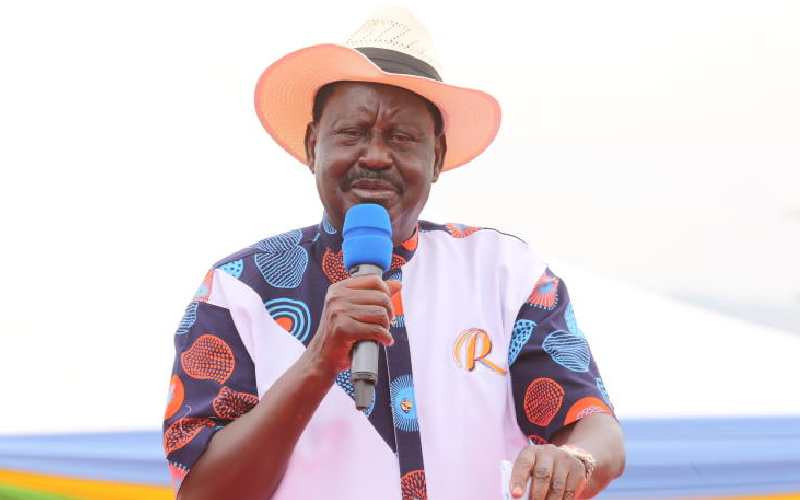
Azimio leader Raila Odinga speaking during the launch of Kigoto maize mill in Suba south Homa bay county on November 4, 2022. [Collins Oduor, Standard]
We will continue flattering and annoying Baba because we love and hate him in equal measure. Those who love Raila Odinga have complained that Deputy President (DP) Rigathi Gachagua has too much of Raila in his 'post-election' mouth and that the DP should concentrate on more pressing issues. However, for Raila to remain relevant, prominent Kenyans must keep his name in their mouths, keyboards and minds.